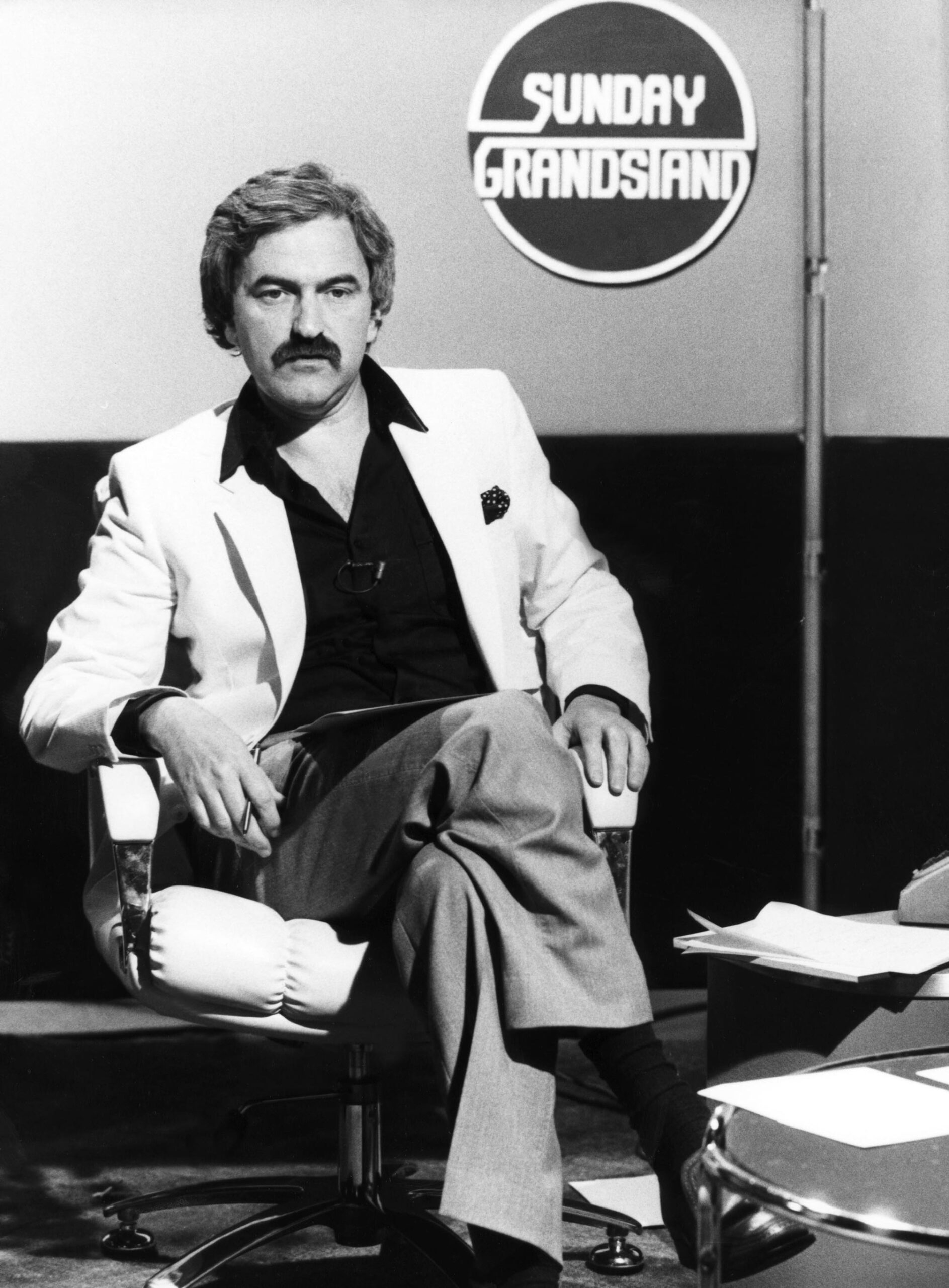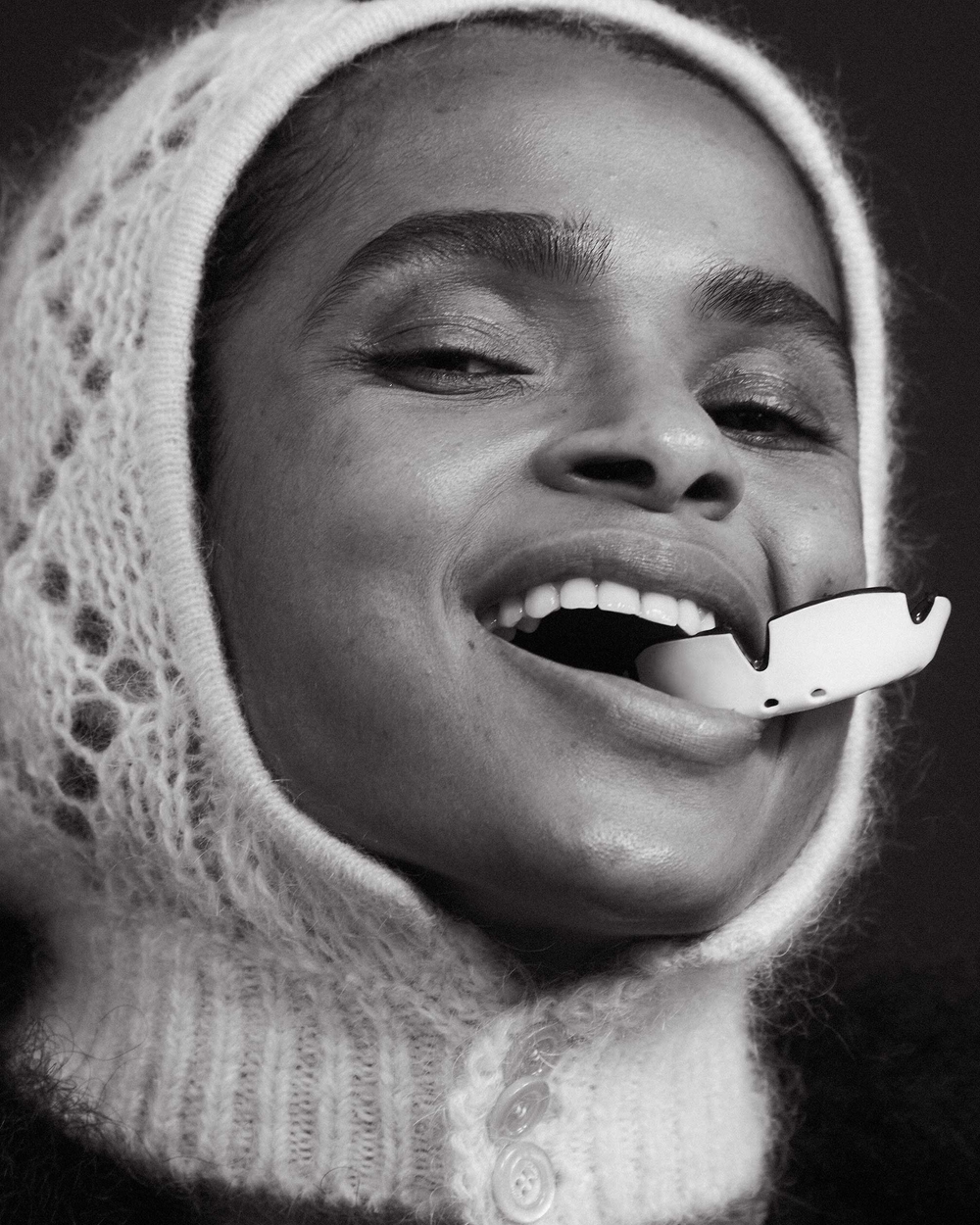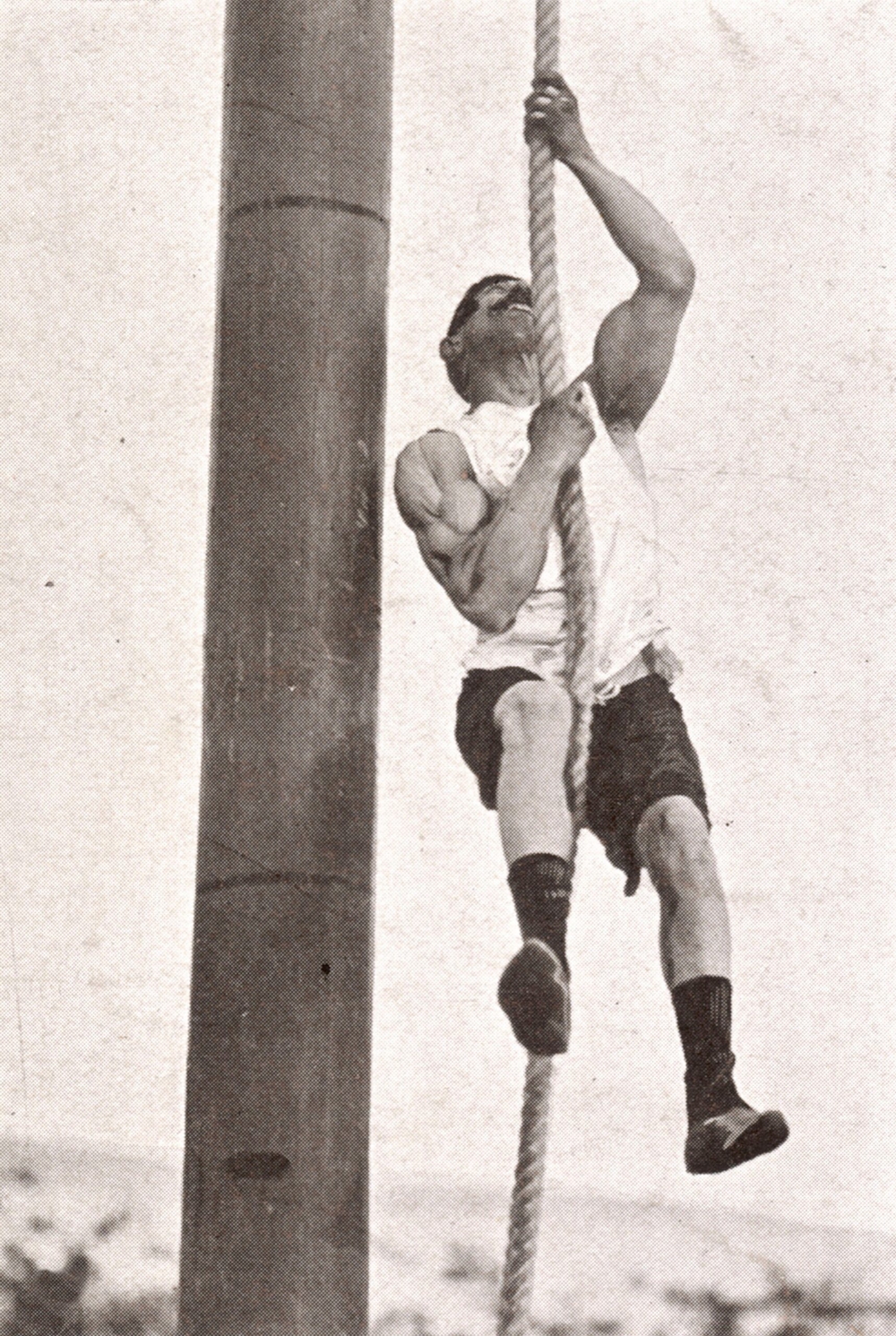In spring 1989 during a typical Saturday afternoon live broadcast of Grandstand on BBC1, legendary host Des Lynam was sitting as usual behind his desk in the studio, stitching the day’s sports coverage together in his effortlessly classy style, while random BBC staffers milled around in the background in the sports newsroom looking busy, as they always did. Des decided to tell viewers about some of the tantalising sporting events still to come that season, and while he was talking to camera in his textbook smooth yet enthusiastic way about the likes of the impending Grand National and Masters Golf, something odd was happening behind him. It looked like two of the BBC employees were arguing with each other.
Des carried on regardless, but then unmistakably touched his earpiece – something a true live broadcasting pro like him would never usually do, drawing attention as it does to the fact that some producer or other is secretly talking to him. He was clearly being told that something was going on in the background.
And sure enough, the disagreement between these two BBC blokes was escalating before our eyes and they started to actually, physically fight each other, while other chaps from the sports department tried to pull them apart. Des, though, was thoroughly unruffled. While the scrap continued, he told viewers, “We’ll continue to do our best to cover sport in the way that you like, backed up by our highly professional team.”
The irony! The programme then cut to some live sport, and when Des was back on screen, one eyebrow quizzically raised, he cued up a slow-mo action replay of the fight that had broken out behind him. It was a truly extraordinary, freaky, funny moment.
It was also April 1st. Yes, the whole glorious sequence of events turned out to be a brilliantly staged April Fool’s joke. It also summed up the joy of live television in general, and of Grandstand in particular.
Grandstand ran for 48 years, three months and 19 days. Basically, if you were a sentient being into sports at any time during those decades, you’d probably be watching Grandstand of a Saturday. It launched in 1958 as a way of bringing together the various sporting events that the BBC had the rights for in one epic weekly package. The first regular host was David Coleman, whose slightly melodramatic style was one of the main inspirations for the character of Alan Partridge. Remarkably, there were only three other main presenters of Grandstand throughout its subsequent almost five decades of live shows: Frank Bough, the aforementioned Des Lynam, and, in later years, Steve Rider. All of them had that very BBC sense of authority, as did the roll-call of famous commentators who graced the show with their expertise, from Murray Walker and Peter Alliss to Harry Carpenter and Tony Gubba: all blokes, of course, although Clare Balding’s early appearances on the show, covering horse racing and rugby league in the 1990s, helped turn her into a national treasure.
The show was topped and tailed by football coverage most weeks during its heyday, although of course they could never show any live football because Saturday kick-offs were kept sacrosanct so that fans had to actually attend the games to see any live football. Instead, the show kicked off with Football Focus at 12:15pm, presented by the likes of affable ex-Arsenal goalkeeping legend Bob Wilson, in which he and select pundits would talk us through the games to come later that day, along with manager and player interviews, for 45 minutes that were pretty much unmissable for any football fan. Then after a few hours of horse racing from Ripon, or wherever, and maybe some snooker or rugby, Grandstand would be keeping us abreast of the scores in the 3pm kick-offs, with extended half-time reports and then, as the matches came to an end around 4:45pm, Final Score would kick in, and we’d get to watch the vidiprinter, a celebrated bit of archaic tech which would magically show each football result as soon as it was confirmed, with David, Frank, Des or Steve talking us through the unfolding implications of the day’s footballing dramas, plus reports from the trusty gang of reporters out and about at the big matches across the country.
This was in the years before Jeff Stelling’s Soccer Saturday on Sky, of course, when they came up with the genius idea of getting pundits to watch the games live and talk us through the action which we viewers couldn’t see, although I have little doubt if the BBC hadn’t slowly weakened the Grandstand brand in the Noughties until its sad demise, Jeff Stelling would have been the perfect host; the wryly funny spiritual successor to Lynam. As it was, watching the results come through in front of our very eyes, while Des read them out for us in his dulcet tones, accompanied by a soundtrack of a popular tune of the day such as ‘The Way It Is’ by Bruce Hornsby And The Range (this actually happened), has to be one of the most pleasurable and indelible 1980s TV viewing memories for many of us.
Along with this unforgettable football results coverage week in, week out, Grandstand really came into its own with its unbeatable broadcasts of the big live annual sporting events like Wimbledon, the Grand National and even the Boat Race, which somehow seemed important and exciting even though it just involved a bunch of posh lads from Oxford and Cambridge. It was particularly thrilling in 1978 when the Cambridge boat sank. And who can forget the 1997 Grand National when Des Lynam anchored the show on location at the Aintree racecourse and had to deal with a confusing and scary situation when news of an IRA bomb threat broke? At one point during the programme we saw Des sternly being told in no uncertain terms by the race supremo that he and the rest of the BBC crew had to leave Aintree as quickly as possible, along with the thousands of spectators. Des, obviously, inevitably, remained cool and calm throughout.
When the Premier League came along in the 1990s, and Sky’s bold, ambitious, and way more showbiz approach to football coverage and sport on TV in general became the norm, Grandstand started to feel a tad… quaint. Then Sky quickly snapped up the rights to almost any live sport it could get its hands on, leaving the BBC to scrabble about for the dregs to show on a Saturday afternoon, and it felt inevitable that Grandstand would start to wither. Sure enough, in 2006 the BBC announced that Grandstand would be gradually phased out. Thankfully for football fans, they kept Football Focus, now hosted by Alex Scott of course, and Final Score. But on 27 January 2007, the final Saturday edition of Grandstand was broadcast, with Clare Balding closing the show forever with a glorious montage of moments throughout its history. And that extraordinarily thrilling Grandstand theme tune, written by Keith Mansfield, which always felt like the musical manifestation of sport itself, played out one last time…






